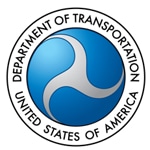
“These grants will help ensure that the future of mass transit is energy-efficient and friendly to the environment,” said U.S. Transportation Secretary Anthony Foxx. “This funding will reduce our dependence on fossil fuels and support the growing sustainable energy industry in the United States.”
The FTA’s Low or No Emission Vehicle Deployment Program was established under the Moving Ahead for Progress in the 21st Century Act (MAP-21). It focuses on commercializing the cleanest and most energy-efficient U.S.-made transit buses to help reduce emissions like carbon dioxide and carbon monoxide. The LoNo program builds on the success of FTA’s National Fuel Cell Bus Program, which invested in the research, development and testing of alternative fuels and related equipment for the transit industry.
A Notice of Funding Availability for the FTA LoNo Program can be found in the Federal Register. The previous round of LoNo funding, announced in February 2015, awarded $55 million in grants to ten organizations nationwide.
“The LoNo program has helped deploy environmentally-sound, technologically-advanced vehicles across the country, providing a better riding experience for passengers and improving public health,” said Acting FTA Administrator Therese McMillan. “By reducing fuel and maintenance costs, these modern vehicles are a great public investment – saving taxpayer money in the long run while powering innovative American enterprises.”
FTA will award the LoNo funds on a competitive basis to transit agencies and state transportation departments working either independently or jointly with bus manufacturers already making low- and zero-emission buses. Priority will be given to proposals that, among other criteria:
- Use tested bus models with proven effectiveness, especially zero-emission models;
- Exhibit strong transit agency and community commitment, including technical and project management skills; and
- Demonstrate understanding of and accommodation for public safety.
In addition, all LoNo procurements will have to follow FTA Buy America regulations and undergo Bus Testing at FTA’s facility in Altoona, Pa.
Of the $22.5 million available in LoNo grant funds, a minimum of $3.0 million is available to support facilities and related equipment. Transit agencies may also use a portion of their annual FTA formula funds to purchase additional vehicles.
In addition to their environmental benefits, LoNo transit buses will, in the long run, help transit agencies save money on fuel and maintenance costs. According to the National Renewable Energy Laboratory, zero-emission buses can achieve up to 87% greater fuel economy compared to buses running on diesel and other fuels.
Related News
- Colorado Transit Worker Safety Bill (House Bill 25-1290)
- Chairman Pauli Announces Retirement, SMART-TD celebrates his career
- New Mexico Local 1687 sets new precedent with Red Apple Transit
- Tentative Agreement Reached With TransitAmerica Services (TASI)
- New CSX conductor improvises to save a life
- SMART News: Protecting Railroad Retirees’ Future
- More Than a Story: SMART-TD’s Women’s History Month Highlights Legacies in the Making
- Tentative Agreement Reached in Boston
- Assembly, No. 1672
- Historic short-line agreement proves workers are stronger with SMART-TD at their side